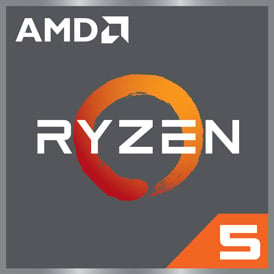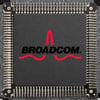
Valve Steam Deck (2023 Refresh) Benchmark, Test and specs
Last updated:
The Valve Steam Deck (2023 Refresh) was released in Q4/2023 and has 4 cores. The processor can process 8 threads simultaneously and uses a mainboard with the socket FF3.

| Name: | Valve Steam Deck (2023 Refresh) |
|---|---|
| Family: | AMD Ryzen 5 (84) |
| CPU group: | AMD Sephiroth (Steam Deck Refresh 2023) (1) |
| Architecture: | Sephiroth (Zen 2) |
| Segment: | Mobile |
| Generation: | 4 |
| Predecessor: | Valve Steam Deck (AMD Custom APU 0405) |
| Successor: | -- |
CPU Cores and Base Frequency
The Valve Steam Deck (2023 Refresh) has 4 cores. The clock frequency of the Valve Steam Deck (2023 Refresh) is 2.40 GHz (3.50 GHz). An initial performance assessment can be made using the number of CPU cores.
| CPU Cores / Threads: | 4 / 8 |
|---|---|
| Core architecture: | normal |
| Cores: | 4x |
| Hyperthreading / SMT: | Yes |
|---|---|
| Overclocking: | No |
| Frequency: | 2.40 GHz |
| Turbo Frequency (1 Core): | 3.50 GHz |
| Turbo Frequency (4 Cores): | 2.80 GHz |
Internal Graphics
The Valve Steam Deck (2023 Refresh) has an integrated graphics that the system can use to efficiently play back videos. The Valve Steam Deck (2023 Refresh) has the AMD Custom Radeon Graphics (Steam Deck) installed, which has 8 streaming multiprocessors (512 shaders).
| GPU name: | AMD Custom Radeon Graphics (Steam Deck) |
|---|---|
| GPU frequency: | 1.00 GHz |
| GPU (Turbo): | 1.60 GHz |
| Compute units: | 8 |
| Shader: | 512 |
| Hardware Raytracing: | No |
| Release date: | Q3/2021 |
| Max. displays: | 2 |
|---|---|
| Generation: | -- |
| Direct X: | 12 |
| Technology: | 7 nm |
| Max. GPU Memory: | 8 GB |
| Frame Generation: | No |
Hardware codec support
Processors with integrated graphics can process video codecs faster. Support for modern codecs can significantly increase system efficiency during video playback.
| h265 / HEVC (8 bit): | Decode / Encode |
|---|---|
| h265 / HEVC (10 bit): | Decode / Encode |
| h264: | Decode / Encode |
| VP8: | Decode / Encode |
| VP9: | Decode / Encode |
| AV1: | No |
|---|---|
| AVC: | Decode / Encode |
| VC-1: | Decode |
| JPEG: | Decode / Encode |
Memory & PCIeThe Valve Steam Deck (2023 Refresh) supports a maximum of 16 GB memory. Depending on the mainboard, the processor can use a maximum of 4 (Quad Channel) memory channels. This results in a maximum bandwidth of the main memory of 102.4 GB/s. |
|
| Memory type: | Memory bandwidth: |
|---|---|
| LPDDR5-6400 | 102.4 GB/s |
| Max. Memory: | 16 GB |
| Memory channels: | 4 (Quad Channel) |
| ECC: | No |
| PCIe: | 3.0 x 8 |
| PCIe Bandwidth: | 7.9 GB/s |
Thermal ManagementThe Valve Steam Deck (2023 Refresh) has a TDP of 15 W. Based on the TDP, the system manufacturer can and must adapt the cooling solution to the processor. |
|
|---|---|
| TDP (PL1 / PBP): | 15 W |
| TDP (PL2): | -- |
| TDP up: | -- |
| TDP down: | 4 W |
| Tjunction max.: | 100 °C |
Technical details
Modern production reduces the waste heat of a processor and increases its efficiency. The Valve Steam Deck (2023 Refresh) is made in 6 nm and has 6.00 MB cache.
| Technology: | 6 nm |
|---|---|
| Chip design: | Monolithic |
| Socket: | FF3 |
| L2-Cache: | 2.00 MB |
| L3-Cache: | 4.00 MB |
| AES-NI: | Yes |
| Operating systems: | SteamOS (Arch Linux) |
| Virtualization: | AMD-V, SVM |
|---|---|
| Instruction set (ISA): | x86-64 (64 bit) |
| ISA extensions: | SSE4a, SSE4.1, SSE4.2, AVX2, FMA3 |
| Release date: | Q4/2023 |
| Release price: | -- |
| Part Number: | 100-000000932 |
| Documents: | -- |
Rate this processor
Benchmark results

The benchmark results for the Valve Steam Deck (2023 Refresh) have been carefully checked by us. We only publish benchmark results that have been created by us or that have been submitted by a visitor and then checked by a team member. All results are based on and fullfill our benchmark guidelines.
Cinebench 2024 (Single-Core)
The Cinebench 2024 benchmark is based on the Redshift rendering engine, which is also used in Maxon's 3D program Cinema 4D. The benchmark runs are each 10 minutes long to test whether the processor is limited by its heat generation.

|
AMD Ryzen Threadripper 1920X
12C 24T @ 4.00 GHz |
||

|
Intel Core i5-8259U
4C 8T @ 3.80 GHz |
||

|
Intel Core i7-4770K
4C 8T @ 3.90 GHz |
||
|
|
Valve Steam Deck (2023 Refresh)
4C 8T @ 3.50 GHz |
||

|
Valve Steam Deck (AMD Custom APU 0405)
4C 8T @ 3.50 GHz |
||

|
AMD Ryzen 7 1700
8C 16T @ 3.70 GHz |
||

|
Intel Core i5-6500
4C 4T @ 3.60 GHz |
||
Cinebench 2024 (Multi-Core)
The Multi-Core test of the Cinebench 2024 benchmark uses all cpu cores to render using the Redshift rendering engine, which is also used in Maxons Cinema 4D. The benchmark run is 10 minutes long to test whether the processor is limited by its heat generation.

|
Intel Core i7-1355U
10C 12T @ 5.00 GHz |
||

|
Intel Core i7-6700
4C 8T @ 4.00 GHz |
||

|
Intel Core i5-8400
6C 6T @ 4.00 GHz |
||
|
|
Valve Steam Deck (2023 Refresh)
4C 8T @ 3.50 GHz |
||

|
Valve Steam Deck (AMD Custom APU 0405)
4C 8T @ 3.50 GHz |
||

|
Intel Core i5-8400T
6C 6T @ 3.30 GHz |
||

|
AMD Ryzen 5 PRO 5650U
6C 12T @ 4.20 GHz |
||
Cinebench R23 (Single-Core)
Cinebench R23 is the successor of Cinebench R20 and is also based on the Cinema 4 Suite. Cinema 4 is a worldwide used software to create 3D forms. The single-core test only uses one CPU core, the amount of cores or hyperthreading ability doesn't count.

|
Apple A12X Bionic
8C 8T @ 2.49 GHz |
||

|
Apple A12Z Bionic
8C 8T @ 2.49 GHz |
||

|
AMD Ryzen 7 1700X
8C 16T @ 3.80 GHz |
||
|
|
Valve Steam Deck (2023 Refresh)
4C 8T @ 3.50 GHz |
||

|
Valve Steam Deck (AMD Custom APU 0405)
4C 8T @ 3.50 GHz |
||

|
Intel Xeon E3-1230 v5
4C 8T @ 3.80 GHz |
||

|
AMD Ryzen 7 PRO 1700X
8C 16T @ 3.70 GHz |
||
Cinebench R23 (Multi-Core)
Cinebench R23 is the successor of Cinebench R20 and is also based on the Cinema 4 Suite. Cinema 4 is a worldwide used software to create 3D forms. The multi-core test involves all CPU cores and taks a big advantage of hyperthreading.

|
Intel Core i5-1035G7
4C 8T @ 3.30 GHz |
||

|
Intel Core i7-4770
4C 8T @ 3.60 GHz |
||

|
Intel Core i7-4770R
4C 8T @ 3.60 GHz |
||
|
|
Valve Steam Deck (2023 Refresh)
4C 8T @ 2.80 GHz |
||

|
Valve Steam Deck (AMD Custom APU 0405)
4C 8T @ 2.80 GHz |
||

|
Intel Core i5-1035G4
4C 8T @ 3.30 GHz |
||

|
Intel Core i7-1060NG7
4C 8T @ 2.80 GHz |
||
Geekbench 6 (Single-Core)
Geekbench 6 is a benchmark for modern computers, notebooks and smartphones. What is new is an optimized utilization of newer CPU architectures, e.g. based on the big.LITTLE concept and combining CPU cores of different sizes. The single-core benchmark only evaluates the performance of the fastest CPU core, the number of CPU cores in a processor is irrelevant here.

|
Intel Core i7-6850K
6C 12T @ 3.80 GHz |
||

|
AMD EPYC 7402
24C 48T @ 3.35 GHz |
||

|
Intel Core i3-7350K
2C 4T @ 4.20 GHz |
||
|
|
Valve Steam Deck (2023 Refresh)
4C 8T @ 3.50 GHz |
||

|
Intel Core i5-8365UE
4C 8T @ 4.10 GHz |
||

|
Intel Core i3-8300
4C 4T @ 3.70 GHz |
||

|
Intel Core i5-8400H
4C 8T @ 4.20 GHz |
||
Geekbench 6 (Multi-Core)
Geekbench 6 is a benchmark for modern computers, notebooks and smartphones. What is new is an optimized utilization of newer CPU architectures, e.g. based on the big.LITTLE concept and combining CPU cores of different sizes. The multi-core benchmark evaluates the performance of all of the processor's CPU cores. Virtual thread improvements such as AMD SMT or Intel's Hyper-Threading have a positive impact on the benchmark result.

|
Intel Core i3-10305T
4C 8T @ 3.70 GHz |
||

|
Google Tensor G3
8C 8T @ 2.91 GHz |
||

|
Intel Xeon E3-1575M v5
4C 8T @ 3.00 GHz |
||
|
|
Valve Steam Deck (2023 Refresh)
4C 8T @ 2.80 GHz |
||

|
Intel Xeon E5-2620 v3
6C 12T @ 2.80 GHz |
||

|
Intel Core i3-10105T
4C 8T @ 3.60 GHz |
||

|
Intel Core i3-10300T
4C 8T @ 3.60 GHz |
||
iGPU - FP32 Performance (Single-precision GFLOPS)
The theoretical computing performance of the internal graphics unit of the processor with simple accuracy (32 bit) in GFLOPS. GFLOPS indicates how many billion floating point operations the iGPU can perform per second.

|
AMD Ryzen 5 PRO 3350G
AMD Radeon RX Vega 10 (Raven Ridge) @ 1.30 GHz |
||

|
AMD Ryzen 7 2700U
AMD Radeon RX Vega 10 (Raven Ridge) @ 1.30 GHz |
||

|
AMD Ryzen 7 PRO 2700U
AMD Radeon RX Vega 10 (Raven Ridge) @ 1.30 GHz |
||
|
|
Valve Steam Deck (2023 Refresh)
AMD Custom Radeon Graphics (Steam Deck) @ 1.60 GHz |
||

|
Valve Steam Deck (AMD Custom APU 0405)
AMD Custom Radeon Graphics (Steam Deck) @ 1.60 GHz |
||

|
AMD Ryzen 5 PRO 5675U
AMD Radeon RX Vega 7 (Renoir) @ 1.80 GHz |
||

|
AMD Ryzen 5 5625U
AMD Radeon RX Vega 7 (Renoir) @ 1.80 GHz |
||
Benchmarks

Cinebench 2024 (SC)
272 entries
272 entries

Cinebench 2024 (MC)
271 entries
271 entries

Cinebench R23 (SC)
586 entries
586 entries

Cinebench R23 (MC)
565 entries
565 entries

Geekbench 6 (SC)
1,755 entries
1,755 entries

Geekbench 6 (MC)
1,703 entries
1,703 entries

FP32 SP (iGPU)
2,042 entries
2,042 entries

3DMark Timespy (iGPU)
516 entries
516 entries
Popular comparisons
back to index







